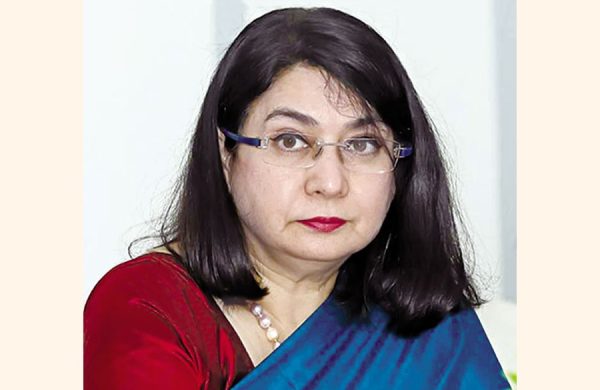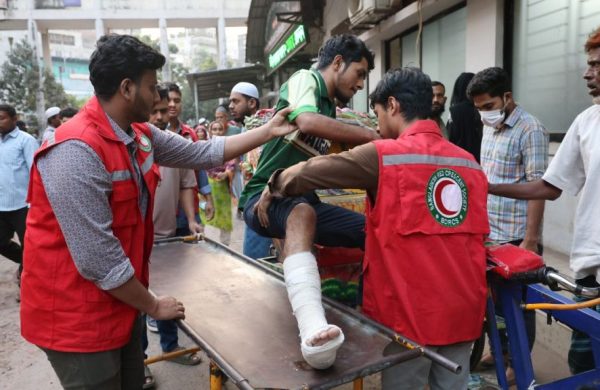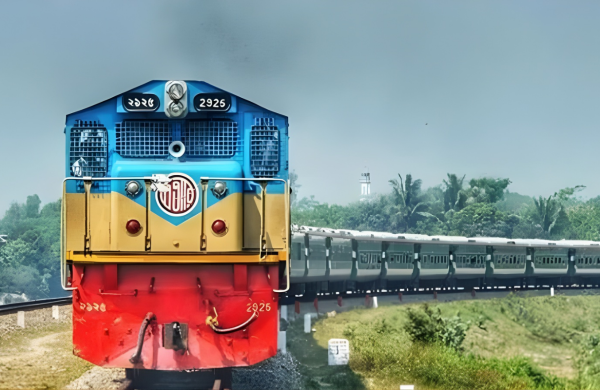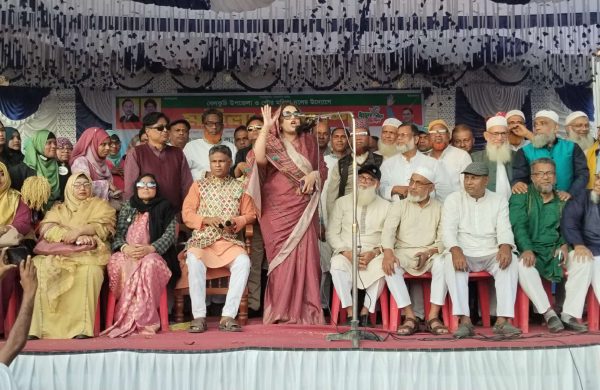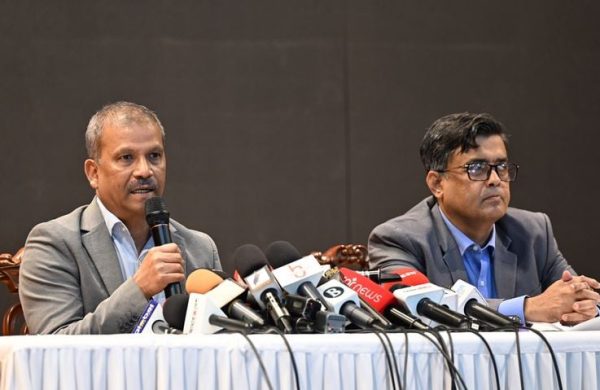The Fire We Keep Ignoring
- Update Time : Saturday, October 18, 2025

—Kaniz Kakon—
The fire that engulfed a seven-story garment factory in Dhaka’s Mirpur area on 14 October 2025 has once again revealed the enduring fragility of Bangladesh’s industrial safety net. At least sixteen people lost their lives, most from inhaling toxic fumes after being trapped behind a locked rooftop exit. The fire spread rapidly through an adjoining chemical warehouse, reportedly storing hydrogen peroxide, bleaching powder, and plastics, materials that turned the building into a furnace. Officials confirmed that the factory lacked proper safety clearance, and the warehouse’s licensing status remains under investigation. For many, the haunting images of workers suffocating behind sealed doors evoke not only grief but déjà vu, a painful reminder that industrial tragedies in Bangladesh follow a pattern of neglect rather than chance.
Bangladesh’s ready-made garment (RMG) industry, the backbone of its economy, employs about four million workers and generates more than 80% of the country’s export earnings. Yet behind this global success story lies a system that still treats worker safety as secondary to speed and profit. According to the Bangladesh Institute of Labour Studies (BILS), 707 workers were killed in workplace accidents in 2024, while the Safety and Rights Society (SRS) recorded 758 deaths in 639 incidents across the same year. The country’s Fire Service and Civil Defence (FSCD) responded to 26,659 fire incidents in 2024, resulting in 140 deaths and 341 injuries, underscoring the alarming frequency of industrial hazards. Despite the scale of the problem, the FSCD employs only about 14,500 personnel nationwide, a modest figure for a nation of 170 million people with thousands of high-risk facilities.
The Mirpur tragedy follows a long and painful lineage of preventable disasters. The Tazreen Fashions fire of 2012 claimed 112 lives when exits were locked, and the Rana Plaza collapse of 2013 killed over 1,100 workers, drawing global outrage and catalysing reforms. In the aftermath, Bangladesh entered into two landmark safety initiatives, the Accord on Fire and Building Safety and the Alliance for Bangladesh Worker Safety. These programmes led to inspections, retrofitting, and partial improvements, particularly in large, export-oriented factories. But when the accords expired in 2018, oversight of smaller and subcontracting units weakened dramatically. The International Labour Organisation (ILO) and local labour rights groups have since warned that many smaller facilities continue to operate in converted residential buildings with narrow staircases, overloaded wiring, and inadequate emergency exits. The Mirpur fire’s deadly progression exposes the consequences of those persistent gaps.
For the millions of workers behind Bangladesh’s industrial miracle, the workplace is not merely a site of production, it is a site of survival. The women and men who sew the country’s economic future often do so in spaces that fail to guarantee their own. The question is no longer whether Bangladesh can grow its export sector; it is whether such growth can coexist with human dignity. While international brands have pledged ethical sourcing, the pressure of low-cost, fast-turnaround contracts continues to incentivize risky shortcuts. The country’s factory owners, facing razor-thin margins, often prioritise deadlines over safety compliance, and in this race to the bottom, it is always the workers who bear the heaviest cost.
The interim government led by Dr Muhammad Yunus has vowed to uphold accountability and the rule of law. The Mirpur fire offers an early test of that resolve. If the official investigation leads to transparent findings, criminal prosecutions for negligence, and policy reform, it could mark a genuine turning point. But if it ends, as too many inquiries have, in silence and compensation without consequence, public trust will erode further. Meaningful reform requires more than immediate relief; it demands institutional restructuring. Factory registration, safety inspections, and hazardous-material licensing must be centralized and publicly accessible. Every industrial building should undergo annual fire audits, with penalties tied to insurance and export approvals. Worker safety committees, protected from retaliation, must become a legal requirement, not a suggestion.
Equally, the responsibility does not rest with Bangladesh alone. The global fashion economy, whose profits depend on cheap labour from the Global South, cannot continue to outsource risk while hoarding reward. Brands must share the cost of safety compliance through fair pricing and binding purchasing practices that allow suppliers to meet international standards without fear of losing orders. Ethical sourcing cannot be confined to marketing brochures; it must be embedded in the economics of trade itself.
The fire at Mirpur is more than a tragic accident; it is a mirror reflecting the moral contradictions of modern capitalism. How can a nation that earns billions from the labour of its poor continue to expose them to unsafe conditions? How many times can we tag the same disaster “unfortunate” before admitting it is systemic? Bangladesh has rebuilt from worse before, yet to break the cycle of disaster and denial, this moment must be treated not as another entry in a list of tragedies, but as a catalyst for change. True progress will not be measured by export numbers, but by whether workers return home safely each day. The fire we keep ignoring will not go out on its own; it will burn quietly in every unsafe factory, every silent inspection, every compromise made for profit. If this nation truly seeks a new dawn of accountability, the first step must be ensuring no one ever dies behind a locked door for the price of a garment.
————————————————————-
The writer is an Assistant Professor in the Department of Philosophy at IUBAT and currently on study leave, residing in Oslo, Norway





